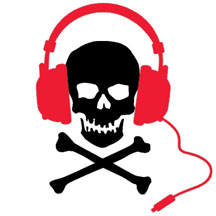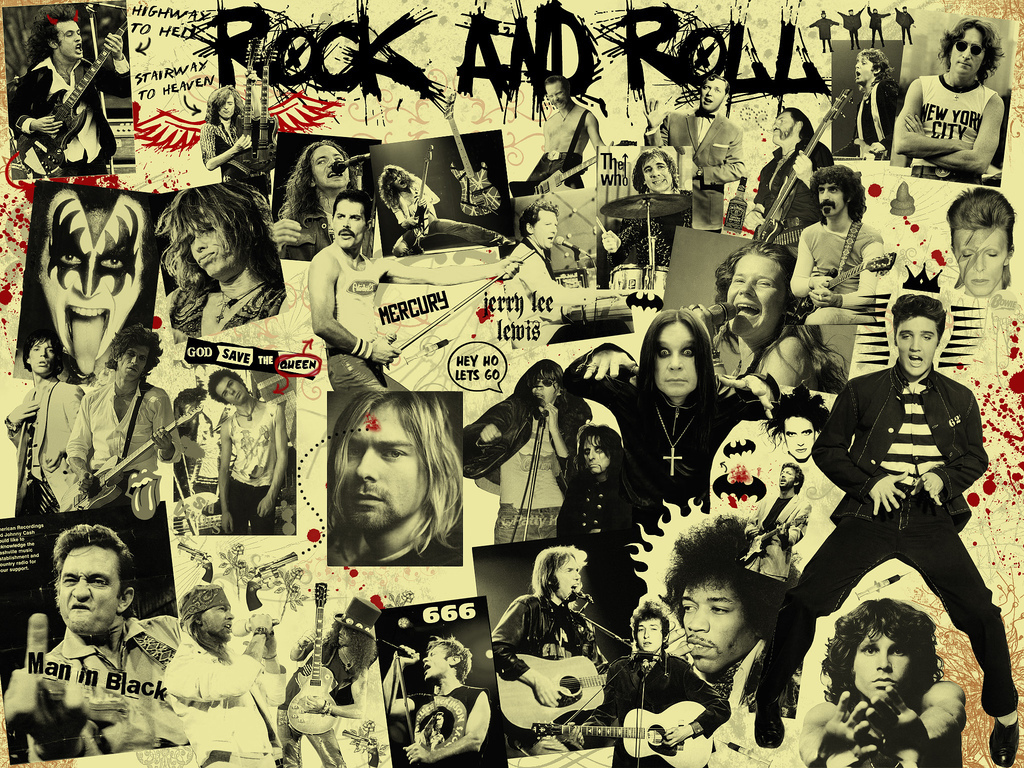WEST LONG BRANCH, N.J. – Micheal Schenker Group proudly proclaimed on their 1983 album Built to Destroy, “Rock Will Never Die.” That was 30 years ago, and while they may have been right at the time, there is no real denying that rock is in a much different place today than it was then.
Very few bands have come along to pick up the torch their predecessors carried through the ‘60s, ‘70s, ‘80s, and early ‘90s, and a majority of the ‘old guard’ no longer possess the same level of clout they once did. What does this mean for the genre? Are we on the cusp of a new generation of rock legends, or is the music that inspired an entire generation no longer relevant?
To give some perspective, listen to classic rock essentials, such as: AC/DC, Led Zeppelin, Aerosmith, Van Halen, The Who, Queen, and many others. These bands have been credited by most as defining the hard rock genre, with their heavy guitar work and soaring vocalists, and have each been inducted into the Rock and Roll Hall of Fame. Before discovering these acts, hopefully you did not have to suffer through what gets passed off as music on the pop stations! Once the magical guitar licks of these artists enter your ears, you’ll realize that there was a whole other world of music that many millennials do not even know about. Sadly, by listening to these icons, you’ll realize that there has not been any band to come along recently that has gotten anywhere close to their earlier level of quality.

In terms of popularity, while it may not come across in the mainstream, rock music is (surprisingly) still one of, if not the biggest, musical genre today. Pollstar’s Mid-Year Chart for 2013’s Biggest Tours lists Bon Jovi, Bruce Springsteen, and the Rolling Stones at the top; so obviously people still care about these bands enough to see them live.
Sooner or later, though, these bands, as well as all the classic rock bands of old, will eventually fade away, and not because of relevance, but age– the average age of members of The Rolling Stones is 69. Once these bands are gone, there will no longer be an old guard to rely on, and audiences will have to either listen to the classics exclusively, or find new artists to take their places.
Right now, rock fans are forced to rely on the current mainstream rock bands to inspire a younger generation, who will then push the genre forward and hopefully keep it relevant for years to come. So which of the mainstream rock bands are capable of creating a new wave of rock? Nickelback is probably the biggest in terms of mainstream appeal, but they are still hated by most hard rock enthusiasts, which was evidenced by the petition to stop them from playing the Thanksgiving Half-Time Show in 2011.

The Foo Fighters, on the other hand, are widely embraced by rock audiences, but they are hardly a new band at this point, and their music is still fairly rooted in grunge and traditional hard rock.
At one point, it seemed that Wolfmother was capable of carrying the hard rock torch, but main member, Andrew Stockdale, has become schizophrenic in what he wants his band to sound like, while also replacing band members left and right.
Regarding the more recent bands, Rival Sons have the right mentality when it comes to writing bluesy hard rock tunes, but their music is still very Zeppelin-esque, resulting in the band being lumped into the “throwback” category. The same can be said about Halestorm, who won the Grammy for best Hard Rock/Metal Performance last year. Lead singer Lzzy Hale (yes, she spells it without the I), has the energy and charisma to elevate the band to mainstream appeal, although the music sounds bland and unoriginal.
Why are there no bands out there really pushing the envelope? One of the main issues is when it comes to the actual sale of new music. It is no secret that the industry has been fighting online piracy for the past 15 years, and while the New York Times reported that sales finally began to increase last year, they still lost $16.5 billion.
This is not exactly encouraging for up and coming artists, with the dream of becoming rich and famous musicians drifting further and further away. This has also resulted in bands touring more in order to make up for lost revenue on albums, which is why ticket prices for big name acts have soared astronomically over the past decade, with most big names bands charging in the triple digits for decent seats.

There is also the issue of exposure. The Internet has served as both a blessing and a curse for new bands, making it incredibly easy to upload and share music, which is crucial for building an audience. At the same time, because it is so easy to release music online, there is now a massive influx of new music being posted constantly. This has resulted in hordes of new material becoming buried, making it difficult for most bands to stand out. This is a problem not only for these artists, but for listeners looking for new and interesting music.
The biggest issue, though, is that most modern rock bands are not pushing the genre in any new direction. Rather than taking their influences and creating something fresh, most of them simply sound like rehashes, merely trying to emulate their influences, rather than trying to craft a new sound. If the rock genre hopes to remain relevant in the next few decades, the sound needs to evolve.
This is a tall order, however, since hard rock has such a specific sound. Speeding up the music and making it heavier turns it into heavy metal, while slowing it down transforms it into blues. Hard rock is ultimately trapped within its own stylings, making it extremely difficult for the genre to break out of its mold.
Is rock music doomed? It is probably too early to tell right now, and “doomed” might be too strong of a word in this case. However, if more new bands do not come along and push the genre forward, Michael Schenker Group might have some explaining to do.




